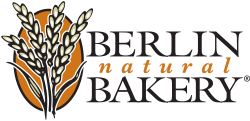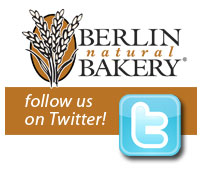The Non GMO Project

Are GMOs safe?
In 30 other countries around the world, including Australia, Japan and all the countries in the European Union, there are significant restrictions or outright bans on the production of GMOs because they are not considered proven safe. In the U.S. on the other hand, the FDA approved commercial production of GMOs based on studies conducted by the companies who created them and profit from their sale. Many health-conscious shoppers find the lack of rigorous, independent, scientific examination on the impact of consuming GM foods to be a cause for concern.Do Americans Desire Non-GMO Foods?
Polls consistently show that a significant majority of North Americans would like to be able to tell if the food they are purchasing contains GMOs (a 2008 CBS News Poll found that 87% of consumers wanted GMOs labeled). According to a recent CBS/New York Times pool, 53% of consumers said they would not buy food that has been genetically modified. The Non-GMO Project's seal for verified products will, for the first time, give the public an opportunity to make an informed choice when it comes to GMOs.How common are GMOs?
According to the USDA, in 2007, 91% of soy, 87% of cotton, and 73% of corn grown in the U.S. were GMO. Starting in 2008, virtually all of the U.S. sugar beet crop is GMO, and it is estimated that over 75% of canola grown is GMO. There are also commercially produced GM varieties of squash and Hawaiian Papaya. As a result it is estimated that GMOs are now present in more than 80% of packaged products in the average U.S. or Canadian grocery store.

Where does the Non-GMO Project come in?
The Non-GMO Project is an initiative of the North American organic and natural product industry to create a standardized definition of the non GMO and a 3rd party verification program to assess product compliance with this Standard. The Project's Product Verification program is entirely voluntary, and participants are companies who see the value of offering their customers a verified non-GMO choice. Many of the individuals and businesses leading the way with the Project are the same ones responsible for creating the original organic standards.Understanding the Non-GMO Project Seal
The retailers who started the Non-GMO Project were motivated by a simple idea. They believed that consumers in N. America should have access to clearly labeled non GMO food and products, now and in the future. The conviction continues to be the guiding mission of the Non GMO Project, but it's a lot easier said than done! A huge part of the challenge is that by the time the Project was created, GMOs had already been in production across the U.S. and Canada for close to 10 years. Contamination risks to seeds, crops, ingredients and products had been steadily increasing without any standardized set of best practices in use to identify and stop contamination. But whereas this difficult reality had previously paralyzed all efforts to address the problem, the Non-GMO Project took a different approach. We decided that the lack of a perfect solution was no excuse not to try, and we blieved that with enough hard work and collaborative spirit we could improve the situation, rather than allowing it to worsen. Our efforts are paying off, and while our work on the Project's consensus-based Standard and independent Product Verification Program continues to be incredibly complex, we have succeeded in establishing an industry-wide system for addressing contamination and a "Non-GMO Project Verified" seal will start appearing on products in stores this fall.So what does "Non-GMO Project Verified" mean?
First of all, we want you to understand what it doesn't mean. It is not a guarantee that the product is 100% GMO free. The reason for this is that our program is process-based, using a set of best practices to avoid contamination. We do require testing of all ingredients (everything being grown in GMO form in N. America), but we don't require testing of every single finished product. Instead, testing can be done at any one of a number of places in the production chain, for example right after harvest. Following the test, which must indicate that the ingredient is below 0.9% GMO (in alignment with laws in the European Union), we require rigorous traceability and segregation practices to be followed in order to ensure that the tested ingredients are what get used in the product. So in short, what our seal means is that a product has been produced according to rigorous best practices for GMO avoidance, including testing of risk ingredients. Companies enrolled in the Non-GMO Project are serious about keeping GMO's out, and work hard to do so. While you might see other claims regarding GMO status (e.g. "GMO free") these are really not legally or scientifically defensible, and they are not verified by a third party. The Non-GMO Project is the only organization offering independent verification of testing and GMO controls for products in the U.S. and Canada. Buying products that are enrolled and verified in our program is the best way to support the sustained availability of non-GMO choices in North America. As a non-profit organization, we are committed not only to verifying and labeling products, but also to supporting and coordinating efforts between seed breeders, farmers, processors and manufacturers. With time, these efforts will allow us to protect and even expand the availability of non-GMO seeds, ingredients and products. Sign the Non-GMO Project Pledge...show your support. www.NonGmoProject.org.Comments
Elizabeth Moore
March 10 2021
Thank you for providing non GMO products. Still I would like to see you use more nutritious sweetner and a better oil.
Elizabeth Moore
March 10 2021
Thank you for providing non GMO products. Still I would like to see you use more nutritious sweetner and a better oil.






Comments
1 Comment